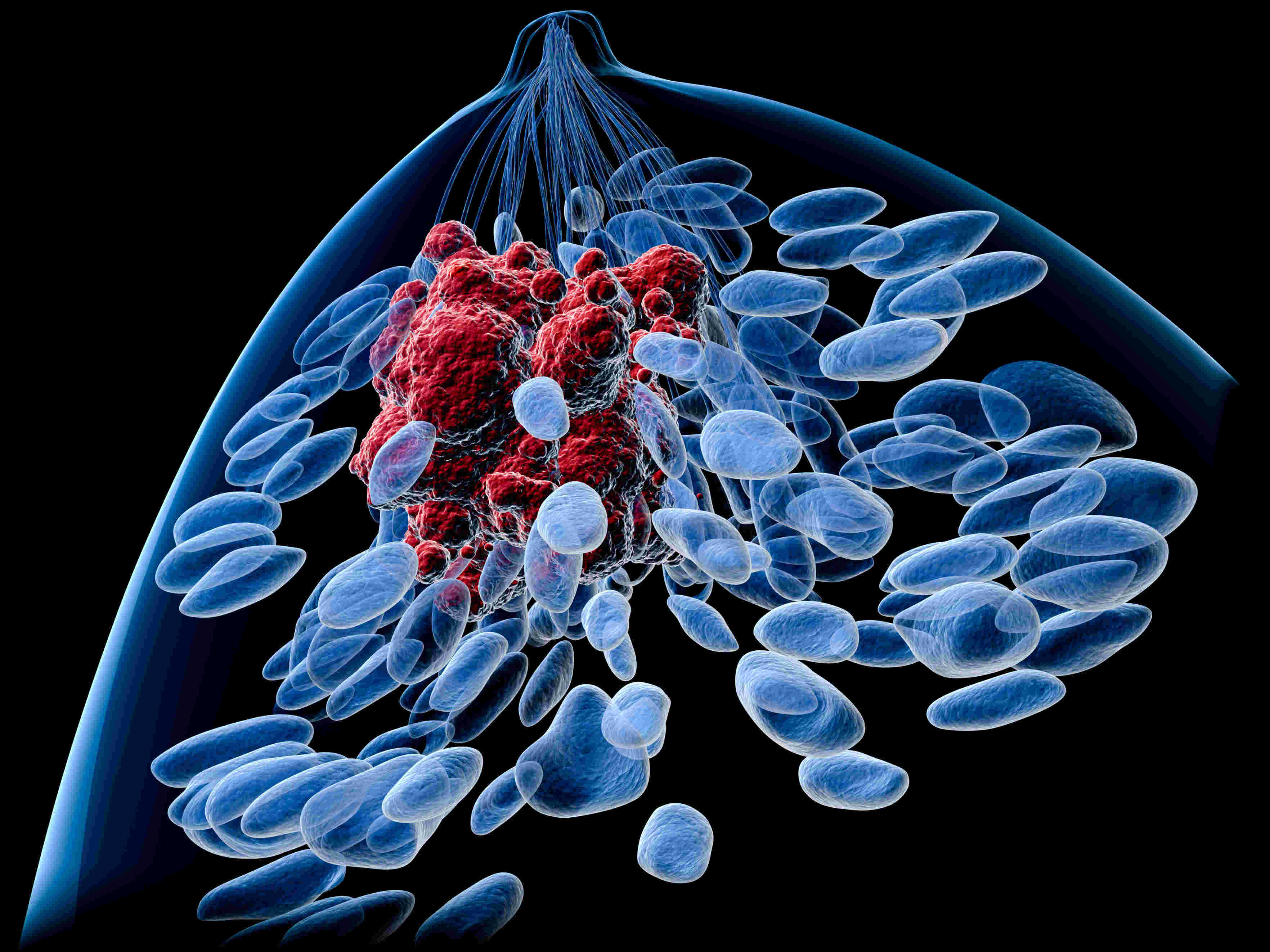23 October 2023 | Monday | News

Image Source | Public Domain
The European Organisation for Research and Treatment of Cancer (EORTC) and the Menarini Group (Menarini), a leading international pharmaceutical and diagnostics company, today announced they have launched a new study for breast cancer patients: EORTC 2129-BCG TREAT ctDNA, a clinical trial supported by the EORTC Breast Cancer Group. Menarini and its subsidiary, Stemline, will provide elacestrant. A molecular residual disease (MRD) test for the detection of circulating tumour DNA (ctDNA) will also be used. The study was submitted under the new Clinical Trial Regulation, and it is expected to start the activation process in the fourth quarter of 2023.
ORSERDU® (elacestrant) was approved by the European Commission in September 2023 as a monotherapy for the treatment of postmenopausal women, and men, with estrogen receptor (ER)–positive, HER2-negative, locally advanced or metastatic breast cancer (mBC) with an activating ESR1 mutation who have disease progression following at least one line of endocrine therapy including a CDK4/6 inhibitor.
"We are excited to offer to our high-risk, ctDNA positive, ER+/HER2- early-stage breast cancer patients the possibility to participate in the Treat ctDNA trial. ctDNA positive patients will be identified using a personalised assay. We aim to study the value of the new selective estrogen receptor degrader (SERD), elacestrant, in reducing the rate of late distant relapses for these patients," said Prof. Michail Ignatiadis, chair of the EORTC Breast Cancer Group and Director of the Breast Medical Oncology Clinic and Program at the Jules Bordet Institut.
This intergroup trial, managed by the EORTC Breast Cancer Group, will be jointly conducted with several national and international cancer clinical research groups, including the German SUCCESS group under the umbrella of BIG (Breast International Group). Twelve countries have been selected to participate in the trial (Italy, France, Belgium, Spain, Ireland, Cyprus, Germany, Greece, the Netherlands, Portugal, Sweden and Switzerland) with more than 120 sites expected to screen approximately 1960 patients. The randomised, open label, superiority phase III trial will evaluate whether elacestrant can delay the occurrence of metastasis or death compared to standard adjuvant endocrine therapy in patients with early-stage ER+/HER2- breast cancer and molecular relapse.
"The Menarini Group is glad to partner with EORTC on this important study, to expand our understanding of how elacestrant may potentially benefit ER+/HER2- patients with early-stage breast cancer," said Elcin Barker Ergun, CEO of the Menarini Group. "Evaluating new treatments with a manageable safety profile, such as elacestrant, is important as we seek new options for this population."
After verification that patients meet the eligibility criteria, they will enter the ctDNA screening phase of the study, in which plasma samples will be collected and tested the to detect the presence of ctDNA. The test will be performed every six months from study entry until the end of accrual. Patients with a positive ctDNA test, who do not have metastasis and who fulfill the eligibility criteria, will be randomised to either the standard endocrine treatment arm (the same treatment they were receiving before detection of ctDNA) or to the elacestrant arm. Patients will be randomised to one of the two treatment arms within four weeks of receiving their test results, with the goal of randomising 110 patients in each arm. Patients in both the control and experimental
arms will benefit from timely detection of macroscopic disease relapse.
© 2026 Biopharma Boardroom. All Rights Reserved.